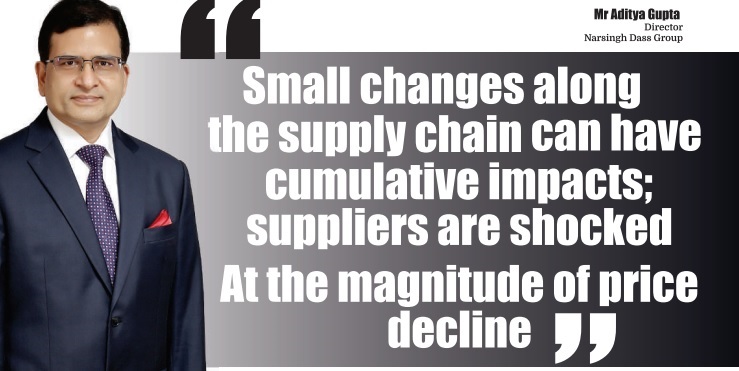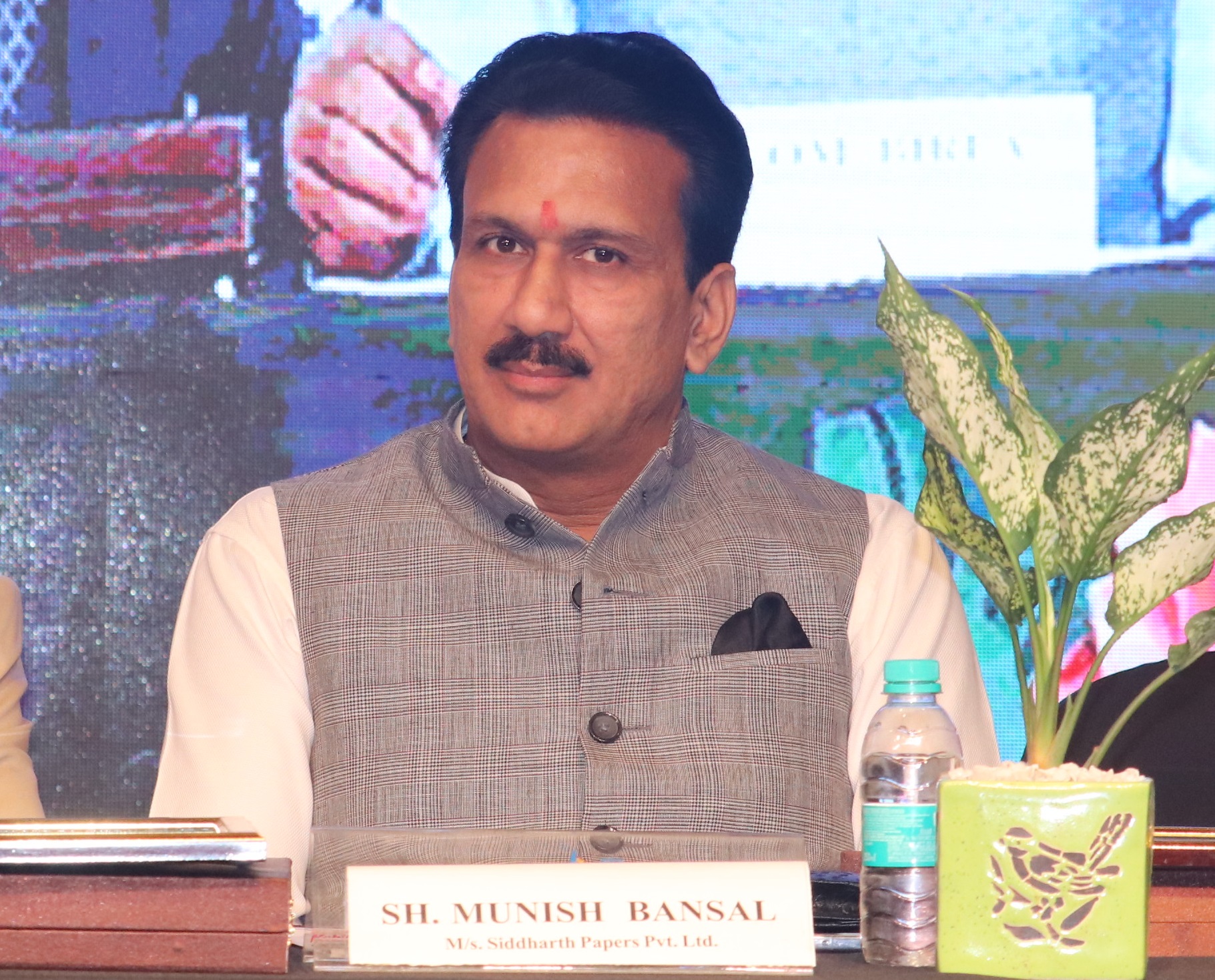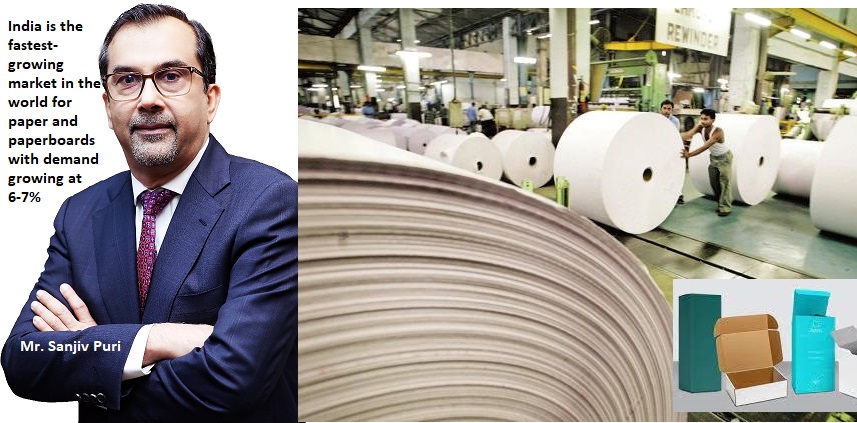PIMS may be helpful in providing BIS compliance of the produced in different geographical locations, lesser number of HSN codes

PIMS may be helpful in providing BIS compliance of the produced in different geographical locations, lesser number of HSN codes
-Small changes along the supply chain can have cumulative impacts; suppliers are shocked at the magnitude of price decline
The below article is written by Aditya Gupta, Narsingh Dass Group (NDG). NDG chaired by Shri Satyapal Gupta is in existence since 1958 . The group is among the largest multi locational and having the pan India presence. This is a close family knit company with the fourth generation aiding to the legacy laid by our founder late Shri Narsingh dass gupta .
The NDG group works with all verticals of the paper sector and offer paper of all varieties, tailored to the customer functional requirement. We are into B2B and B2C segment of the trade. We export to nearly 10 countries around the globe with the offices in major metros and overseas. The value to share knowledge is ingrained in all the generations and everyone work hard to make a mark for himself and the group at large.
Mr Aditya Gupta is also Convenor of Paper Technical committee, PMA (Regd.) Delhi for year 2022-23, and Member, Industry affair committee, FPTA for year 2022-23. Views are personnel.
New Delhi | 24th April 23 | The Pulp and Paper Times:
Paper is made from infinitely renewable resource and is biodegradable. Paper is symbol of literacy in India and hygiene. The written expression on paper ingrains the subconscious mind of every human being.
The cyclic trend of Pulp & paper pricing has changed and emerging trends are getting tougher, day by day, to predict. There is a change being witnessed due to fiber source (waste paper- Indian /imported, Agro residue- Bamboo, rice or wheat straw, Pulp – imported or indigenous resource from sustainable farmland) and demographic placements. Prices are non-linear and sharp variations are seen due to various socio-economic conditions, available volume, freight cost and origin.
One such condition is seen in the recently held event at Shanghai Pulp Week, which has put the pulp suppliers under great stress as buyers demand big discounts, which lead to a free fall of pulp prices across the grades. The current situation is extremely volatile in favour of the pulp buyers. The suppliers are shocked at the magnitude of price decline.
Indian paper industry currently uses 75% waste/recovered fiber, 8% Agro residues and 17% wood resourced from sustainable forestry. Indian waste paper collection is improving and as per estimate, it has improved from 50% to 62% due to lot of efforts, schemes being carried out by NGO’s, Govt and Private players.
PIMS in place aiding to the data collection for the paper sector imports and may be helpful in providing BIS compliance of the produced in different geographical locations, lesser number of HSN codes and in turn may lead to uniform GST per chapter. EPR in place is also turning the table for the plastic producers, ensuring safe disposal norms in place. These initiatives will be beneficial in the long run when trade policies can be easily framed and implemented and provide the platform for Ease of Doing Business.
We have some history of cooperation and common understanding. The paper sector has a rich, shared history of nearly 70 years. It is in the national interest of all the stakeholders to re-establish a constructive dialogue based on mutual respect and a genuine desire to promote and protect the interests of our members with courage and wisdom. There is a need to establish a “National Paper Council” with representation from manufacturer, trade, convertor and policy maker to present a unified image and policies of the sector.
Pulp and Paper is already an incredibly volatile industry. With promises of more turbulence to come on top of what we’ve already experienced, it’s imperative now more than ever to assess where your business stands and make strategic, actionable plans.
The economic calamity of the last three years has been painful in many respects. Businesses domestically and worldwide have undergone serious stress. We’ve all been left waiting for the next shoe to drop after the numerous warnings of a looming recession. But if there’s one thing we’ve learned and can say with confidence, it’s to always expect the unexpected.
That being said, the only way to hedge against uncertainty with any degree of confidence is with experience to connect the relevant dots and provide meaningful insights.
When uncovering the foundational elements that ensure success for your company, it is important to always keep in mind that knowledge is power. Continuously staying informed of the various factors that impact your business is crucial to maintaining success within your industry.
FPTA, apex body of paper traders of India have incepted “National Paper Day” in November 2017 during Paperex under the convenorship of Shri Satyapal Gupta, former president of FPTA and chairman of Narsingh Dass Group. It is being celebrated since then on “August 1”.
Paper day is being celebrated across India by every paper merchant association and every member paper trader “kagazi” contributes in educating school children, planting trees and by busting the myths surrounding our “Paper”.These Awareness campaigns is adding up more volumes to the business.
Paper cups, paper straws, earbud paper stick and paper bags are also adding up the volume to the business due to the SUP ban announced in July 2022 by the Govt. Paper is finding new use from this platform. Confusion over bio compostable plastic is further adding up the volumes to the paper traders.
FPTA hold “Short term paper technical course” at prestigious institute like in Paper Institute of Saharanpur (northIndia) and Dandeli (south India) for imparting the technical knowledge about paper to every paper trader. This has resulted in smoother international communication and has helped in expanding the paper trade horizon.
PMA, Delhi, organises Paper mill visits for the benefit of traders and hold technical seminars to impart the fellow paper trader members with tools to face the volatility of the market in the best possible way.
Global market uncertainty is the highest, it has been since the Great Recession. Small changes along the supply chain can have cumulative impacts. Therefore, it is important to have access to reliable insights at the local, national and global levels that can help you confidently plan ahead for optimal success despite the potential for volatile market conditions. This will enable you to make better decisions with a high degree of confidence.
I think this is the right time, to assimilate the benefits of Make in India and Atma Nirbhar campaigns, launched by our dynamic prime minister, Shri Narendra bhai Modi, by establishing industrial “PAPER PARK” in India. The motto for such parks will be to provide the much-needed organised paper conversion to realise the final product which can be exported and marketed domestically with minimal overheads and superior quality. This will provide the key to profits to every stake holder of paper sector.
Web Title: PIMS may be helpful in providing BIS compliance of the produced in different geographical locations, lesser number of HSN codes




 Join WhatsApp Group
Join WhatsApp Group Join Telegram Channel
Join Telegram Channel Join YouTube Channel
Join YouTube Channel Join Job Channel (View | Submit Jobs)
Join Job Channel (View | Submit Jobs) Join Buy Sell Channel (Free to Submit)
Join Buy Sell Channel (Free to Submit) Paper News Headlines Channel (Free to read)
Paper News Headlines Channel (Free to read)














